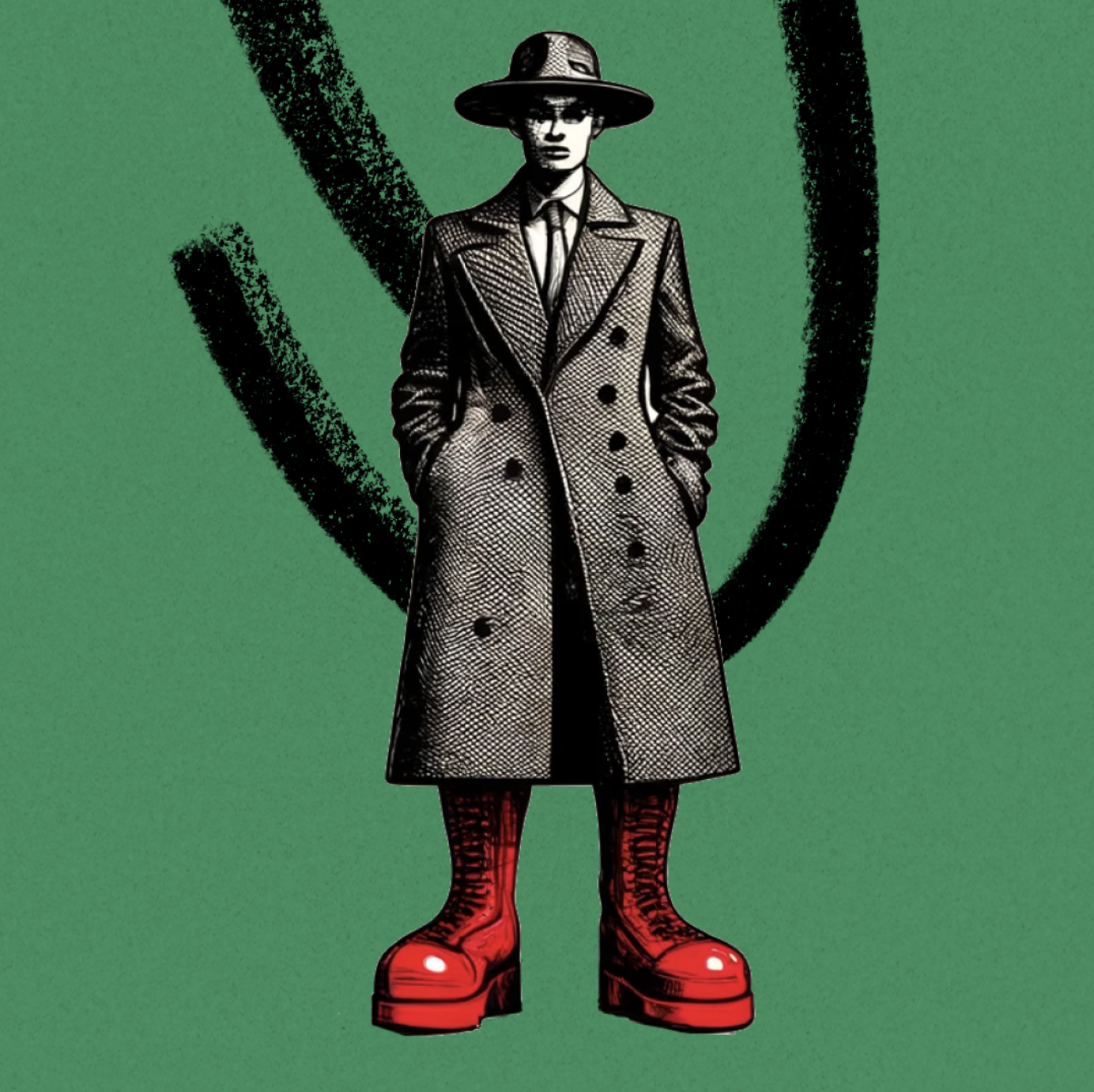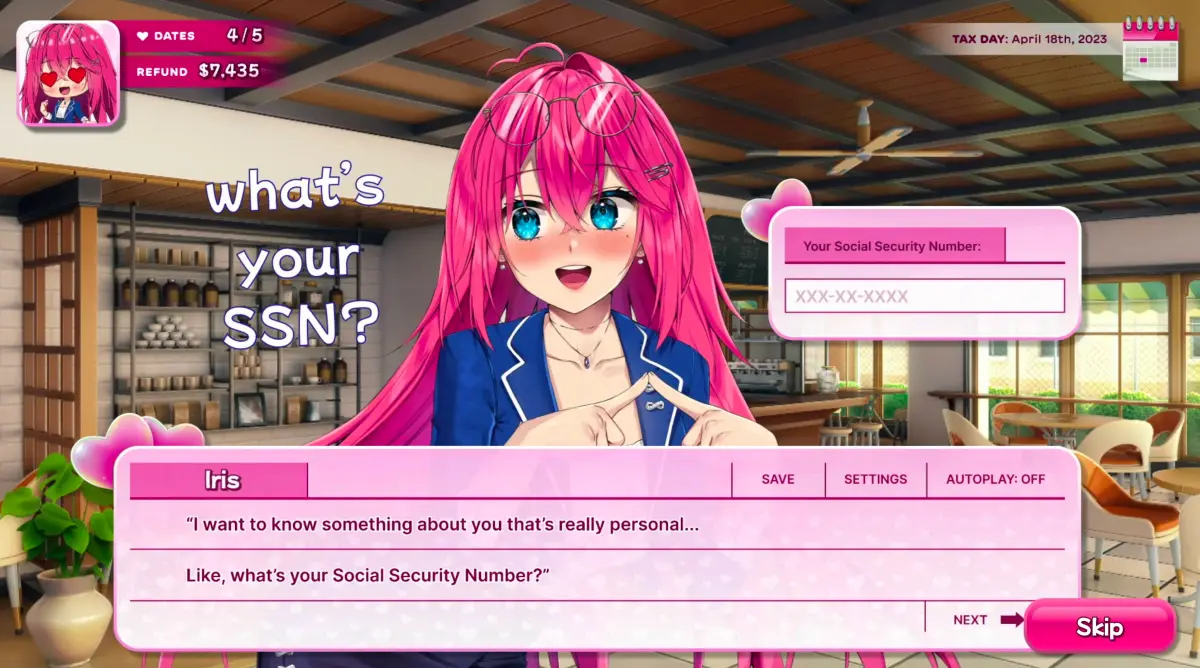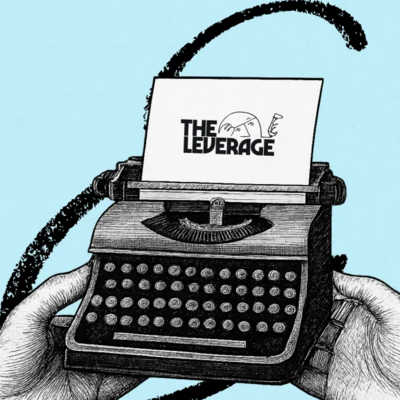
Was this newsletter forwarded to you? Sign up to get it in your inbox.
One of the headier promises of AI is that it will make the creation of goods cheaper. Little robots will automate away rote tasks, dramatically simplifying the production of digital and physical products. In this world, there is an abundance of products, and every industry becomes far more competitive.
How can a startup survive in this environment? The answer is deceptively simple: Have good taste.
Taste is the bone-deep feeling that you’ve made something good. It is a sense, inexplicable and ephemeral. But it’s also a tangible skill that’s increasingly essential. Taste is how a business differentiates itself when attention is scarce and choice is abundant. Knowing what to make is just as important as the ability to make it.
There’s an even bigger challenge needed to build a lasting business: scaling your taste, not just into a single object, but into an organization that can build and distribute many products that reflect that taste.
There are few companies that have successfully scaled taste better than MSCHF (pronounced “mischief”). Well, not exactly a company, as they explained to me when I visited their Brooklyn-based workshop set across the street from a skate park, but an “artists collective that happened to raise venture capital.” Or, according to their self-selected LinkedIn industry category, they are in the business of “Dairy Product Manufacturing.”
The group releases a brand-new product every two weeks, each of which has little physical relationship to the previous drop. Their recent releases include edible AirPod-shaped candy, a perfume that smells like WD-40, and a collaboration with Crocs on a mid-calf boot. In the last five years they have released more than 100 products. Each drop is creative and rebellious, winking to the world that capitalism is a necessary joke. They do all of this with a team of 34 people, most of whom are generalists with no background in making physical goods.
The Croc boot that launched with a Paris Hilton photo shoot. Source: MSCHF.You may think that this is a recipe for disaster, the opposite of most startup advice. Rather than focus on solving a common customer problem extremely well, they do, well, whatever they want. And there’s more weirdness. While MSCHF mostly distributes their goods through channels like email, an app, and social media, they have tried novel distribution techniques that have gotten them banned from Venmo, Shopify, and Twilio. One recent drop I had early access to was distributed with a link to a Google Doc (seriously).
Despite—or because of—these unorthodox practices, the business has been an enormous cultural success. They’ve partnered with celebrities as varied as Paris Hilton ($450 Crocs), Casey Neistat (a single car to which they sold 5,000 $20 keys), and Rihanna (a lip gloss disguised as a packet of ketchup that sold as a six pack for $25). MSCHF is a digitally native brand that has staged high-end art shows in Korea and Los Angeles. They’ve demonstrated a talent for getting journalists to fawn (including this very writer), with coverage in publications like the New York Times, the Wall Street Journal, and Vogue.
It isn’t just cultural success—they’ve built a real business, too. Four years ago, they raised $11.5 million from investors like Canaan Partners and Trae Stephens at Founders Fund. They’ve hit eight figures in revenue, while having no physical retail location. Their shoes—they’ve made 32 pairs—are enormously popular: They’ve measured demand (via direct sales and drawings where customers enter their credit card numbers with the hope to win) of well over 100,000 pairs, which would’ve yielded $35 million in revenue last year alone. The team was unwilling to disclose how many pairs they sold.
And while there are many companies that have grown faster or had more impressive financial results, what attracted me to MSCHF was how they scaled their taste without compromising on it. They’ve made art their business and their business their art. How on earth do they release so many products while staying true to their original vision? How do they keep their team creative and engaged? Are there lessons anyone can apply from what they’ve done?
This is what I learned.
Scale is not the goal—it’s the process
“Our only goal when we started was to make anything we wanted and only what we wanted.”
Kevin Wiesner, MSCHF’s 32-year-old chief creative officer, was pacing at the rear of MSCHF’s workshop. A graduate of Brown and the Rhode Island School of Design, Wiesner wears square-shaped silver glasses and has long, straight hair kissing the tops of his bony shoulders. Before MSCHF, he was the co-founder of an ad agency that “focused on viral campaigns.”
I had two reactions to his statement: a deep, spiritual-level resonance followed by a wash of skepticism. It landed because I manage my creative process similarly. The day I compromise what I write to satisfy the whims of some corporate overlord is the day that I quit writing for a career. One of the pinnacles of human existence is to align our innate desire to create with our day-to-day labor.
This also sounded like the sort of thing you would say during a pitch to a job candidate (or to a writer profiling your company). What actually makes it possible to “make anything” you want is that crass thing—money. And money, not personal interest, is the deciding factor for what a company is able to make.
To my more business-oriented readers, you may be surprised that this is a surprisingly rare view in the creative world. Marketing, sales, distribution—all of that is seen as a secondary, dirty effort, a necessary evil that degrades the quality of your work.
So I was taken aback by the degree by which everyone at MSCHF embraced the capitalist nature of their enterprise. In this regard, our conversations sounded more like those I’d have with a startup than with an artist’s commune. During multiple visits with the leadership team, I heard the same Andy Warhol quote several times: “Being good in business is the most fascinating kind of art. Making money is art and working is art and good business is the best art.”
MSCHF’s art is both the objects they create and the business itself. To accomplish this harmony, MSCHF explicitly programs the idea of scaling into their work—not as the business’s goal, but as a key component of the products they make. For example, in July 2020, MSCHF collaborated with MrBeast on a game called “Finger on the App.”
Source: Finger on the App.The game is exactly as it sounds: Users had to literally keep their fingers on the app. If they took their fingers off, they lost. The more people who played, the more pronounced the meta-commentary on how much time we waste playing games on our phone. In the end, after 70 straight hours, 1.1 million downloads, and 400,000 players, Mr. Beast declared the final four players winners, gave them $20,000 each, and told them to go to sleep.
The more people who buy a product, the further the product’s message spreads, the more money the company makes, the more they can invest in their projects. It's a virtuous cycle of creation and consumption. By making scale—the number of people who use or see the creation—an explicit part of the art’s statement, they naturally marry the business’s goals with the goals of the piece.
This marriage of distribution and product was the idea from the very beginning. When founder and CEO Gabriel Whaley first started making things online in the early 2010s, his creations went viral on their own. One early project, a GIF of the three-bubble indicator of someone typing in iMessage, was covered by mainstream media. The 33-year old Whaley wasn’t born on some artist’s commune that implanted this seed of irreverence early. Instead, his story is fairly classic Americana, one of a rural upbringing and lots of soccer. It was only when he started to create stuff online that the ethos that shapes MSCHF today began to germinate.
The first lesson—that the inherent properties of the creations made people share them—was baked into the company when he founded it in 2016. The studio initially created marketing campaigns for companies like Casper and Slack to fund the rest of their work, but they stopped doing that in 2019 to go all in on their own projects. Whaley, a West Point dropout and University of North Carolina graduate in philosophy who briefly worked at Buzzfeed, learned how an object's inherent properties can make it grow quickly.
“Everyone bifurcates the world into content and distribution,” Whaley told me. He has brown hair, is of average height, and was wearing a nondescript gray t-shirt and jeans when we talked. “From the beginning, we viewed those as the same thing. Each object gets better with more participation, and so does MSCHF. Scale is not the goal. Scale is a tool to make the concepts better and more powerful.”
This idea is usually unheard of to his new hires. Many of his team members attended art or design schools before working in digital media or advertising. “The bummer about art schools and design schools is they don’t teach you how to get [your work] seen,” he said. “Similarly, the bummer with the fine art world is you’re creating art for a very small portion of the world. Artists are not trained to think about distribution as part of their creative practice.”
In early interviews with Whaley, he often talked about the internet being the magic ingredient to MSCHF: “Life is too short and the internet is too big to not make what you want.” MSCHF is a manifestation of that ideal. Make something viral, make money, and do it all over again. However, the challenge is being able to do that consistently—and profitably.
Virality can be engineered
On one side of the MSCHF office, a team of people were assembling a five-foot-tall golden statue that counted how many times someone touched it, while on the other, people wrote code. At the back is a shrine of products across a multitude of categories. Packaged food, video games, shoes, boots, magazines, and fragrances sit on the shelves.
It’s one thing to say that MSCHF released over 100 completely unique products; it’s another to run your hands over them and feel the collective’s mission manifested in real life. One pink box caught my eye: a TurboTax competitor designed as an anime dating sim that helps you with your taxes, packaged like software from Best Buy in the early 2000s. While you could download it for free, the software—called Tax Heaven 3000—was also sold as a $90 collector's edition, which came with a physical copy of the game and a body pillow in the shape of the anime girl. Twenty thousand people used it to file when it was released in 2023.
The game Tax Heaven 3000. Source: MSCHF.Picking up each object is a little overwhelming. The idea of tackling just one of these categories makes my palms sweat—doing a new one every two weeks feels like it should be impossible for a startup.
I asked Whaley how they did it. The answer was surprisingly mundane: with a Google sheet and a series of recurring meetings.
Anyone at MSCHF—from the four-person design team to the chief legal counsel, who practiced law with Obama in Chicago—can suggest what to build next. They’ll enter the idea into a Google document. A central brain trust of five people, consisting of Whaley and the four other founding members who joined in 2019 (including Wiesner), reviews the ideas once every month or two. The best ones have to fit a single criterion: “If we could make this tomorrow, we would.” The culled ideas go into another Google doc where they have to sit and marinate.
After six months, the brain trust reviews the ideas and kills those that don’t stand the test of time. One idea that they still want to do but can’t figure out how to build is “a pyramid larger than the 32-story Bass Pro Shop pyramid in Memphis.” (It was rejected due to lack of feasibility.)
Source: Memphis Tourism.Out of the remaining list, they aim to pick the “the hardest thing,” as Wiesner described it—the most ambitious project that pushes them creatively and has the revenue opportunities they need.
The team is comfortable with taking a bath on a project from time to time. Even objects that they know are going to lose money are considered a success as long as they fulfill the creative needs of the team and are true to the ethos of MSCHF. But don’t mistake it for Hollywood or venture capital, where the game is to make a large portfolio of bets and hope that some of them take off. Instead, it is a deliberate balance between being true to the artistic nature of their endeavor and still needing to fund the collective’s growth.
If you’re disappointed by the mundane nature of this process, so was I. When I arrived at the office, I was half-expecting a bunch of artsy weirdos bedazzled with tattoos and attitude. Instead, I met a group of plainly dressed nice folks, mostly in their 20s and 30s, who worked hard at their craft but tried to keep the real world in sight. When I asked the team what they were excited about, many had the same answer: to finish planning the products through the second quarter of 2025.
That the process is unremarkable is, perhaps, the most important thing about the business. MSCHF succeeds not because it has some super-powerful software or a secret hack at making a better Gantt chart. It succeeds because the company was founded on a strong sense of taste, and its employees work hard to protect the original vision. That means pushing each other to make objects that test their creative abilities and earn enough revenue to ensure that the vision survives.
Part of the reason that MSCHF’s taste process works is that individual artists within the collective subsume themselves to it. None of their artists are allowed to put their names on anything they create. By allowing their individual identities to be absorbed into the collective, they get a larger platform and more resources for their creativity. Similar to how few designers within Hermes are known to the outside world or how Jony Ive is the only standout name on Apple’s design team, when an artist abandons individual recognition, they can achieve a higher plane of creative excellence through the increased resources of the group. The challenge these organizations face is around aligning taste. According to Whaley, MSCHF has so far avoided this problem. “The taste debates are really easy,” he told me. “It has been five years now and the dynamic has been the same the whole time. We know the feeling we get when we’re generally excited about something. It is surprisingly chill and we know what we like.”
One of the benefits of producing consistent creative work is that it comes with a narrative network effect: The more people who know and love the story of an object, the stronger the tie to that object becomes. For a brand like MSCHF, success might not always come from money—sometimes, it comes from products that reinforce how they want to articulate themselves in the world. For example, at the 2022 Art Basel in Miami, they installed an ATM with a leaderboard on which whoever had the most money in their account “won.”
Source: MSCHF.MSCHF didn’t make any money from the ATM. They never displayed it again. It was seen in person by, at most, a few thousand people. So it might appear to be a dud. But the company derived value from the narrative network effects for the brand. Every person who interacted with the ATM encountered an object that expanded MSCHF’s creative universe. It may have created a lot of fans who know MSCHF’s story and where to seek it out—which makes distribution for future products easier. If you compound this over 103 products, you’ve got a MSCHF narrative network effect.
It can be tempting to dismiss this dynamic as mere hype, but narrative network effects are real. Consider the difference between Trader Joe’s (a beloved grocery store with a wide variety of goods, all of which you can trust) and whatever new CPG goods are popular on TikTok. Hype is a flash in the pan. Narrative network effects are durable, long-lasting, and broadly applicable.
‘Distribution is what keeps me up at night’
MSCHF’s long-term success relies on their ability to make products that articulate their taste and keep their audience aware of what they are doing.
When I spoke with customers, fashion industry experts, and friends in the design community about MSCHF’s taste, I heard rumblings of discontent. “They make too many shoes,” or “MSCHF used to be cool, but their products aren’t as good now.” This sentiment from the MSCHF subreddit was typical: “MSCHF trying not to release more mid shoes challenge (impossible).”
There do seem to be merits to this critique. By my count, the company has released 32 pairs of shoes, most of them in the last three years. That’s about a third of their total drops, and they’re not a shoe company. As with any creative work, it’s hard to avoid falling back on the same tricks once you know they can sell. I’ve struggled with this balance myself. When the audience responds to something I’ve written, it can be tempting to chase the revenue and viewership by repeating the format. Repeatability and audience fervor can build a business, but kill the artist.
Theoretically, you can overcome the individual product risk by having impossibly strong distribution. The MSCHF team’s first attempt at unique forms of distribution was with Venmo. For the first few months of the company’s existence, they sent their fans a penny with a URL in the transaction description for their latest drop. On each project's site, customers submitted their Venmo handles.
Funnily enough, sending customers money directly was the cheapest way to contact them. A messaging service like Twilio typically charges its customers more than a penny per email or SMS sent. MSCHF’s solution was an elegant, on-brand way of getting around that cost. It was also, unfortunately, a clear violation of terms and services. They sent messages to about 10,000 customers before Venmo booted them from its service.
Next, they got kicked off of SMS. They had been texting fans with each new drop until one day, they discovered that their delivery rate had dropped by 40 percent. T-Mobile had blocked them from distributing on their network with no explanation or notice. After six months of trying to plead their case, they got nowhere and had to move on. (Maybe the lesson here is that no one can disrupt the banks and the phone carriers.) For a time, they were even banned from Shopify.
Now they’ve made multiple apps and a popular Instagram account, and they’ve started texting again. Whaley wouldn’t tell me exactly how they are sending SMS messages now, but my sense is that it’s through a daisy chain of different accounts and corporate entities.
Rather than rely on a central customer relationship management software to manage their users’ accounts, the company didn’t seem overly concerned about having a defined marketing funnel. They have a hodgepodge of registered emails, phone numbers, and social media followers, but no centralized database that lets them contact these people en masse.
Whaley tells me that “distribution has become easier” for them since the company started. I would argue that the past five years of excellent products and taste has created true narrative network effects. There is no need for an established CRM when—and I apologize for the fluffiness of the following sentiment—you are consistently putting creative energy into the universe. MSCHF is an established cultural force. Each product is judged on its individual merit and relationship to the brand’s narrative, rather than on the strength of the marketing campaign for each drop.
How do you become a 100-year company?
Taste is a double-edged sword. Because it is ephemeral, you’re untouchable if you have it. Competitors won’t be able to copy it—what is there to copy? You can expand products as rapidly as MSCHF has without any negative consequences. But taste can also disappear quickly. If the artists collective loses touch with what makes them special, their advantage will erode overnight.
To me, the key to keeping taste is to be true to yourself. While I recognize that that sentiment would be more appropriate on a wine mom’s wall hanging, it is surprisingly hard. When no one cares about you and you make objects for the simple joy of creation, you’re under no pressure to conform your taste to anyone. When your audience grows—when articles like the one you are reading are written about you, when VCs invest, when the money comes, when your family wants to brag about you to their friends—that’s pressure. You have loyal fans who have a story about you in their heads. If you aren’t careful, success can kill the taste that gave you all those flowers in the first place.
When I asked Whaley about the competitive advantage or vision for MSCHF, he bristled slightly and would only answer obliquely. “I have to think about MSCHF in a 100-year timeframe,” he told me. “Otherwise we are incentivized to take shortcuts.”
I think I understood what he meant. A century-long vision allows you to build something that mostly ignores short-lived fluctuations in public perception or personal feelings. With a vision of that duration, you can think outside of yourself. If you couple that with a hum-drum process of Google Sheets and brain-trust meetings, you can build something meaningful.
There is something beautiful in that. MSCHF is the rare company where being true to yourself allows you to make a comfortable living. If the MSCHF thesis turns out to be right—if taste becomes the key competitive advantage in an age where creation is cheap—then aren’t taste-based businesses the best possible outcome for the world? All you have to do to make money is be yourself, fearlessly.
Evan Armstrong is the lead writer for Every, where he writes the Napkin Math column. You can follow him on X at @itsurboyevan and on LinkedIn, and Every on X at @every and on LinkedIn.
The Only Subscription
You Need to
Stay at the
Edge of AI
The essential toolkit for those shaping the future
"This might be the best value you
can get from an AI subscription."
- Jay S.
Join 100,000+ leaders, builders, and innovators

Email address
Already have an account? Sign in
What is included in a subscription?
Daily insights from AI pioneers + early access to powerful AI tools













.08.31_AM.png)
Comments
Don't have an account? Sign up!
Brilliant, Evan. Well researched and the context is correct. To be yourself, you have to come to the truth about what that is. Unpack it all. That takes time and repetition. Ah!!! That's the hard part. How many professionals know their truth? Start-up or seasoned business owner?
AWESOME STORY!! Loved the reflections on staying true to your essence in art and the actionable advice on how to do that
Enjoyable read with a great message.
Maybe I missed it: are they profitable? Do they experience turnover? Do they expand their employee count?
@adam_1790 didn't get a P&L unfortunately!
Great read! Really cool to get an insight in such an unusual company. It does feel like their dedication to 'taste' is similar to how some companies look at their culture. Where there any practices or something like that in place to reinforce their culture?
Wow, this resonated hard. The pull between staying true and compromising to corporate? That's real.